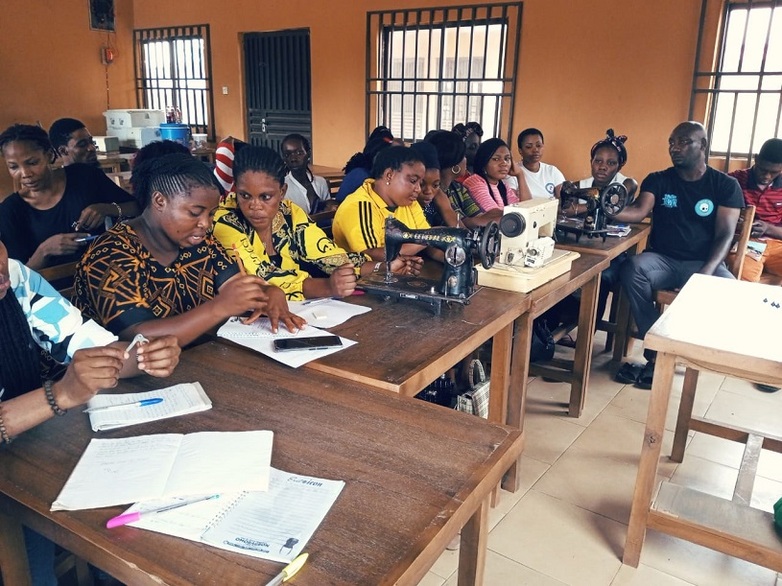Improving training and employment for young people
Promoting Needs-based Technical and Vocational Education and Training and Youth Employment (SKYE II) in Nigeria
-
Client
German Federal Ministry for Economic Cooperation and Development (BMZ)
-
Co-financier
Swiss Agency for Development and Cooperation (SDC)
-
Country
-
Political sponsors
More
-
Runtime
2023 to 2026
-
Products and expertise
Economic development and employment

Context
Nigeria is affected by extreme poverty. In 2022, the rate of poverty was 63 per cent. The country has more than 200 million inhabitants and one of the youngest populations in the world. In addition, the population is expected to double by 2050. Around half of those able to work are underemployed or unemployed. Young people in particular are worst affected.
There is a lack of trained specialists and workers. At the same time, educational institutions are inadequately equipped and vocational training does not meet the needs of the labour market due to its poor quality. Initiatives to promote the vocational training system lack a standardised strategy.
Due to a lack of options, many people migrate from rural areas to economically flourishing cities or abroad.
 © GIZ, Nigeria
© GIZ, NigeriaObjective
Access to the labour market for current and future trainees and job seekers in selected Nigerian states has improved.
Approach
The project assists vocational education and training programmes in meeting current workplace requirements. To achieve this, the programme works closely together with the government, the private sector and civil society. It focuses on:
- Promoting public-private dialogue between the government and companies to develop recommendations on training policy and economic development.
- Improving the quality of vocational training. To achieve this, training organisations are to be advised and new standards and dual training models introduced.
- Promoting employment by setting up job centres. These support young people in their job search.
- Ensuring gender equality and social inclusion. To this end, the programme advises the government and relevant institutions on how employment prospects can be created regardless of gender or origin.
 © GIZ, Nigeria
© GIZ, NigeriaLast update: May 2024






